QuestionHello, I have a mouse that is about 8 months old. She was an obese mouse who became constipated. She seemed to get better after we have her bene-bac probiotics. Recently though she has lost too much weight and walks hunched over and stopped pooping again. Oddly enough she is still very active and eats. She doesn't seem to be itching or wheezing or anything like that. I did speak to an out of state vet over the phone who suggested maybe she had a tape worm or something. I don't have any vets willing to see mice around her so I have no idea what to do.
Have you ever heard of anything like this before? Any advice would be greatly appreciated. Thank you.
AnswerHi Steph,
It is certainly possible that she could have contracted a gastrointestinal parasite, disease, or worm, but there is no way to diagnose and treat that without the aid of a vet. However, from what you've told me, it really sounds like any infection or parasite she might have would be secondary to the cause of the constipation, since her problem responded positively to the probiotics. From that information, we can try some at-home supportive treatments to try and control the problem, which will hopefully make the difference. Both tapeworms and pinworms can cause enteritis (a swelling in the intestines), but only in severe infestations (usually asymptomatic), and these would need a vet's diagnosis before being sure. Treatment for worms involves an oral medication, either in the food or drink, and can also be tough to get or dose without a vet's help, but if our supportive care does not help soon please write me back and I will do everything I can to find if there is a way to better help from home. I will also write to some of my other mouse friends to see if they have any helpful advice as well, or have seen this before.
Since she improved after the probiotics - were these made a regular part of her diet? Or stopped when the problem resolved itself? If they have been halted, I would recommend starting them again. These are good for the "good" bacteria in the gut that aid digestion, and won't make any difference to any possible parasites. It will, however, help her maximize the nutrition she gets from the food she does eat, which may help her put some weight back on.
Another possibility is a food intolerance, which is like an allergy and causes gastrointestinal swelling and trouble passing food normally. This can happen in a mouse that just has the genetic tendency for it, or if a mouse has a naturally abnormal immune system. This condition requires a close look at the diet she is currently eating - is she receiving a lot of high-protein, high-fat foods that could trigger problems? When the problem flairs up, is she given a certain kind of food more often, such as wheat or corn? Oats are a good, relatively "safe" food to provide nutrition, and until you know what is causing the problem, try to cut back on extra treats and seeds. On the other hand, high-fiber foods can help her pass stool normally, but should be monitored carefully. I am emailing a friend who has worked with mice with allergies before to see if she can help us create a more comprehensive diet to look for possible intolerances, but if you happen to be able to inquire the same of your out of state vet who helped before, they might also be able to shed some light!
One final thing to consider is dehydration. Dehydration can cause a mouse to look suddenly very skinny, hunched, and ill, making the fur and eyes look dull, and can be very serious. It also can result from bad constipation, so this may be tied in with the intestinal troubles. The quickest way to get fluid into her is to check that the water bottle sipper is functioning and that the level is steadily going down, change it frequently checking it each time, and offering high-moisture foods. You can make her regular food more moist by dripping water onto it (this means changing it frequently so it does not mold or mildew), or offering foods such as fruit, a piece of bread soaked in water, or even scrambled eggs made with water instead of milk. Keep a careful log when you give these treats, however, so you know if something makes her constipation better or worse.
Hopefully this helps, but if not or if you have any questions please feel free to write me a followup question. In the meantime, as I mentioned, I will be contacting other experts to see if we can come up with a more conclusive way to help her from home.
Best of luck and I hope she feels better soon!
-Tam

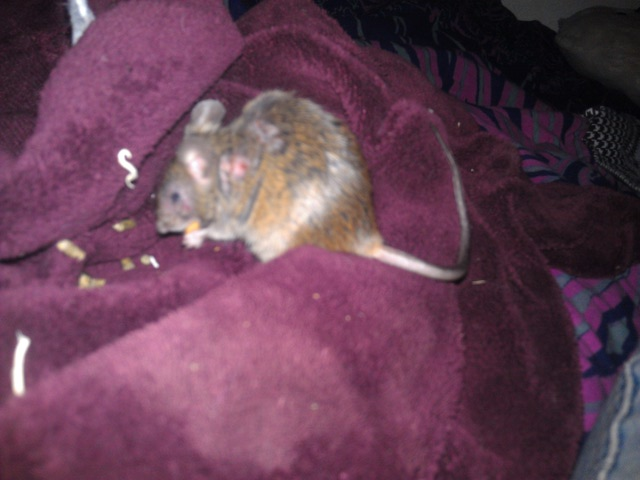 Scabs, hair loss, swollen foggy eye (mouse)
Question
ouchymouse ouchymouse2
One of my
Scabs, hair loss, swollen foggy eye (mouse)
Question
ouchymouse ouchymouse2
One of my
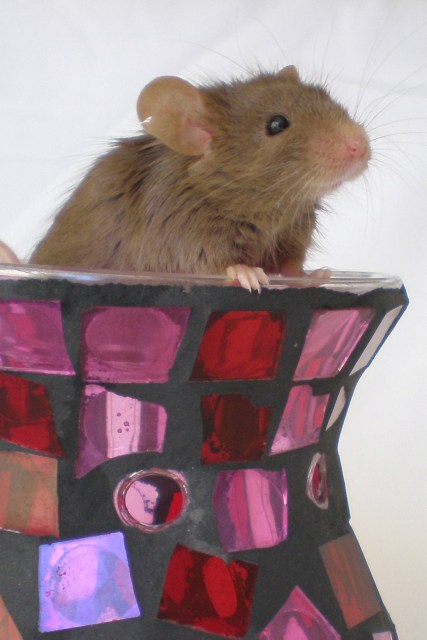 respiratory infections
QuestionGeisha
QUESTION: hi Tamarah,
I would ju
respiratory infections
QuestionGeisha
QUESTION: hi Tamarah,
I would ju
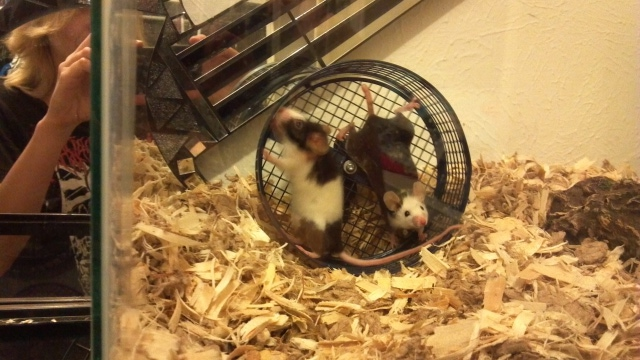 Healing Mollys wound! (mouse)
QuestionQUESTION: Hi!
I have four pet mice, Molly, Lily
Healing Mollys wound! (mouse)
QuestionQUESTION: Hi!
I have four pet mice, Molly, Lily
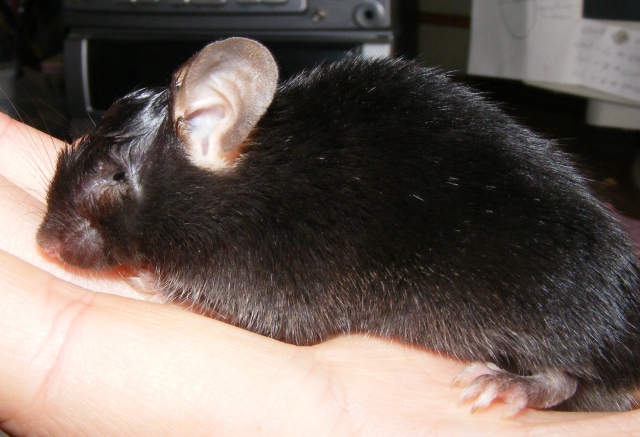 Radish in trouble! Bite leads to infection.
Question
Radish
Hi Natasha,
Just when I thought
Radish in trouble! Bite leads to infection.
Question
Radish
Hi Natasha,
Just when I thought
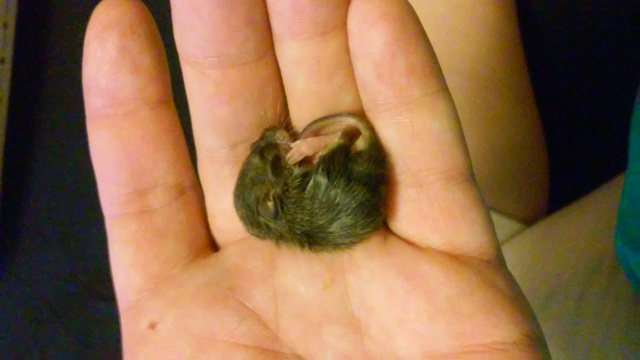 Is she to thin? Flavored pedialyte? HELP!!!
Question
Nym
About a week ago my boyfriend found
Is she to thin? Flavored pedialyte? HELP!!!
Question
Nym
About a week ago my boyfriend found